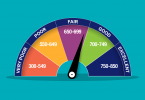There are both advantages and disadvantages of investing in bonds. In financing, bonds are a debt instrument for the issuer of the bonds to their holders. It is a debt bond under which the issuer owes the holder a debt, and depending on the terms of the bond, he is obligated to pay interest to them (the coupon). In addition, the issuer may be forced to repay the capital at a later time, which is called maturity. Usually, interest is paid at fixed time periods (semi-annual, annual, and sometimes monthly). Often the bond is negotiable; in other words, ownership of the instrument can be transferred in the secondary market.
What are the risks of investing in bonds?
In as much as stock prices generally rise faster than bond prices, there are both advantages and disadvantages of investing in bonds but they are usually more risky. Bonds, which are loans to governments and the companies that issue them, are often called good investments for older investors who need to rely on fixed income from interest. Some bonds are more risky than others and usually pay higher interest as a result. It is a good idea to make sure you understand the specific securities that you invest in.
What are the pros and cons of investing in bonds?
Bonds can have a variety of benefits, from low risk and diversification to the ability to provide an income when you need them. The amount you choose to invest in bonds depends on your needs and goals, but it may belong to your long-term portfolio.
As with any investment, diversification is key, even among bonds. Consider funds that allow you to purchase a range of bonds from different categories, such as municipal bonds, international bonds, and high-yield bonds. Spreading your money among these can help protect your egg. Different classes do well at different times and carry different levels of overall risk, so having a variety of investment types can help you hedge against underperformance.
Bonds are also rated from AAA (Highest Score) to C based on their credit value. AAA bonds are viewed as having a low risk of default and their issuers have a very strong ability to meet financial obligations. On the other hand, unwanted bonds (BB and lower) have a higher default risk and offer significantly higher returns as investors expect a higher return on increased risk.
The market price of a bond (which differs from its face value) is also affected by the prevailing interest rates. Bond prices have an inverse relationship to interest rates – prices fall as interest rates increase as investors have more opportunities to generate higher returns elsewhere. Likewise, bond prices increase with lower interest rates as the interest rate on bonds becomes more attractive compared to interest rates elsewhere.
If you have additional funds at your disposal for investment, you must ensure that not all of your eggs are placed in the same basket, that is, invest in only one type of investment instrument. In light of the uncertain economic conditions that prevail today, making various investments is the need of the hour, so that even if you suffer losses in one of the investments, the gains in other investments can compensate you.
Advantages Of Investing In Bonds
- Bonds have a clear advantage over other securities. The volatility of bonds (especially short and medium-term bonds) is less than the volatility of stocks (stocks). Thus, bonds are generally seen as safer investments than stocks. In addition, bonds experience less daily volatility than stocks, and bond interest payments are sometimes higher than the general level of dividend payments.
- Bonds are often liquid. It is often fairly easy for an institution to sell a large number of bonds without affecting the price too much, which can be more difficult for stocks. Indeed, bonds are attractive because of the comparative certainty of paying a fixed interest twice a year and a fixed lump sum on maturity.
- Bondholders also enjoy some measure of legal protection: Under the law of most countries, if a company goes bankrupt, its bondholders often receive some money (the redemption amount), while the company’s shares often end up with no value.
- Bonds come with outsourcing contracts (the contract is a formal debt agreement that sets out the terms for issuing bonds) and covenants (terms of such an agreement). Covenants specify the rights of bondholders and the duties of issuers, such as the procedures that the issuer is obligated to implement or is prohibited from implementing.
You may also like this; Companies That Hire for Remote Accounting Jobs
Disadvantages Of Investing In Bonds
- The main drawback of bonds is that when compared to stocks, gold, and real estate, the interest rate they generate is much lower. For this reason, people who want to multiply/double their money with some good investment do not put their money in bonds.
- There is always a risk of bankruptcy of the company that issued the bonds. Given the impact of the recession on many companies in recent years, this is one possibility that cannot be completely ruled out. So, if that happens, the bonds will not yield any interest, in addition to the investor losing the principal amount as well.
- The term of long-term bonds can be anywhere more than a dozen years. If the investor’s funds are linked to some long-term, low-yielding bonds and suddenly the interest rates on the banks or other bonds rise, there is not much that the investor can do about the situation. In such a case, the investor would end up earning much less money as he would have if he had invested in other instruments.
- It can be said that bonds if purchased during middle-age or near retirement, can become a good investment because they generate regular income. However, people, especially young people, who have the ability to take risks and are looking for high-return investments, should definitely look elsewhere.
How To Invest In Bonds
In a bond fund, a fund manager can buy and sell bonds as they mature or as prices fluctuate. This kind of flexibility is important when interest rates go up, because old bonds that pay 2% interest are not as attractive as new bonds that pay 2.5% interest. Bond prices also decrease when interest rates rise, so you can lose money if you sell your bonds before the maturity date.
In the bond fund, you are not tied to bonds at a lower price, and do not attempt to sell individual bonds on the open market, which can be more difficult.
Another feature of the bond fund is that interest payments can be reinvested automatically, leading to growth over time. After all that has been said, bond funds are not a guarantee – their value can decrease, especially in the short term, and investors can lose money, just like equity funds. It is wise to research your bond investments just as you would the equity portion of your portfolio.





